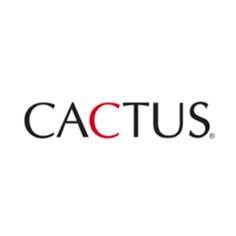For years, researchers have struggled with paywalls blocking access to critical academic journals. Often universities with limited budgets have had to make tough choices, sometimes subscribing to only a fraction of journals out there. Historically, financial constraints have been a barrier for Indian researchers in accessing published articles. The mounting costs of academic journal subscriptions have led to a “serials crisis” in many Indian libraries, limiting researchers’ access to essential scientific literature. India is now taking a leap toward revolutionizing research access with One Nation One Subscription (ONOS), a nationwide initiative that went into effect on January 1, 2025, paving the way. Think of it as the Indian government securing a bulk subscription deal—one that can dramatically lower costs and move toward providing more equitable access to published research.
Cutting through the red tape of individual subscriptions, ONOS offers a single nationwide deal, unlocking over 13,000 journals from 30 major international publishers for more than 6,500 universities, colleges, and research institutions across India. This eliminates the need for institutions to navigate multiple consortia and individual subscriptions to access research publications. ONOS changes that by streamlining access through a single national license, ensuring equitable and seamless research opportunities for over 18 million students, faculty, and researchers. The Information and Library Network (INFLIBNET) Centre, under India’s University Grants Commission, will manage the subscriptions, while a centralized portal will serve as the gateway to these resources. The initiative is set to not only fuel cutting-edge research but also position India as a stronger player in the global research ecosystem, driving innovation.
Addressing access disparities and equalizing opportunities
Many smaller and underfunded institutions find it challenging to keep up with the high costs of individual journal subscriptions, which can make it tough to access quality research. By removing financial barriers, ONOS can ensure that students and faculty at these institutions enjoy the same access to scholarly resources as those at more well-funded universities. With the support of the Indian government, ONOS can negotiate much lower subscription costs with publishers. This way, the financial strain on individual universities, especially smaller institutions, is reduced, making high-quality research materials easier to access and promoting academic excellence. In addition, some of the funds are intended to go towards supporting open-access publishing, broadening the visibility and availability of published research. It’s even suggested that this model could inspire other countries with fewer resources, helping to reduce global inequalities in access to academic knowledge.
Impact on research output quality and quantity
India’s research output reportedly surged, jumping 54% from 2017 to 2022, while also being the third-largest producer of PhD graduates worldwide. At the same time, India ranked ninth in terms of citations, indicating that much of its research isn’t gaining visibility. One reason for this could be the challenges researchers face, like the lack of access to high-quality journals, which makes it harder for them to stay updated on the latest developments in their fields. Plus, the cost for publishing in open access journals that have Article Processing Charges (APCs) can be a roadblock. Moreover, with the pressure to publish looming and a lack of awareness, may lead some researchers to publish their work in predatory journals or subpar publications, compromising academic credibility and standards.
ONOS has the potential to address these challenges. By centralizing journal subscriptions at the national level, it removes financial roadblocks, giving academics the resources they need to make a bigger impact with their work. The initiative also sets aside funding for APCs, helping Indian researchers publish in top open-access journals and gain wider recognition, tying into larger open-access goals and boosting global visibility for Indian research. But access alone isn’t enough. Researchers need training to develop the right skills to navigate academic publishing and uphold ethical standards, turning opportunity into real progress. Mandy Hill, Managing Director of Academic Publishing at Cambridge University Press (CUP), points out that while ONOS is a huge step toward leveling the playing field, real change comes from improving research quality and impact. To help make that happen, CUP is offering author workshops, publication guidance, and other initiatives to support Indian researchers in getting published in high-quality journals. CUP has even teamed up with institutions like Visvesvaraya Technological University to expand access. Hill stresses that beyond providing content, CUP aims to empower researchers to contribute meaningfully to the global knowledge economy.
Conclusion
Despite the doors ONOS can open, some concerns need to be addressed. While top institutions in the country have strong digital infrastructure, many in smaller cities or remote areas have limited or no access to the internet and digital tools. This highlights a glaring disparity in access to scholarly resources. To address this, investing in digital infrastructure, and awareness and training to effectively use digital tools is necessary. Another important aspect to consider is making publications available in formats that support text-to-speech and other assistive technologies, to ensure accessibility for all. Furthermore, India’s many languages enrich its academic landscape but also make it complex. Since most research papers in ONOS’s vast journal collection will be in English, this could be a hurdle for those more comfortable reading in regional languages. The government is exploring translation tools like Anuvadini and Bhashini to bridge this gap, but the inherent challenge lies in accurately translating highly technical research across different fields.
While ONOS has the potential to tear down barriers to knowledge, access alone isn’t enough. For this initiative to truly revolutionize Indian research, it must be the starting point of a broader movement to ensure not just access but also accessibility in research.
Contact us to learn more about how our solutions can help you increase the visibility of your journals and maximize the benefits of ONOS.

